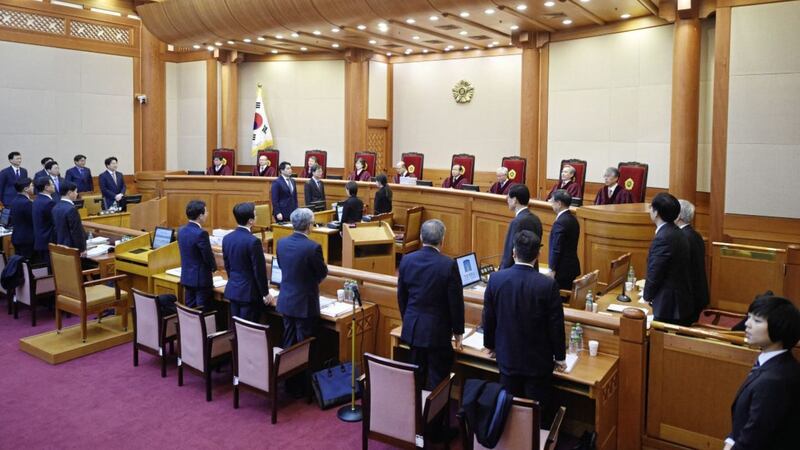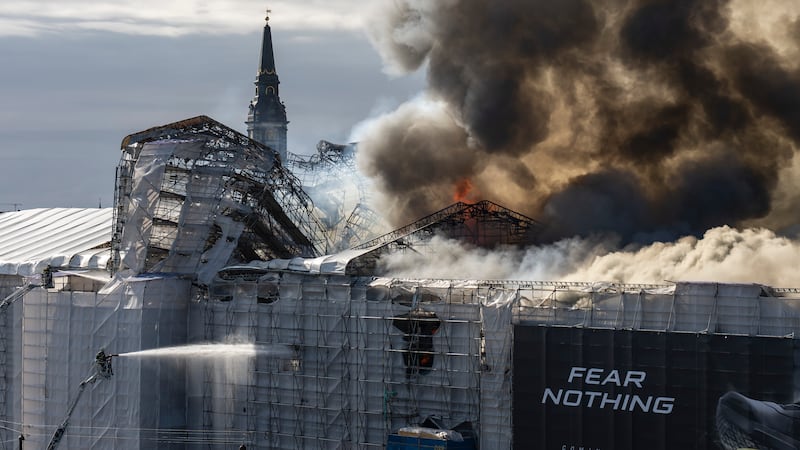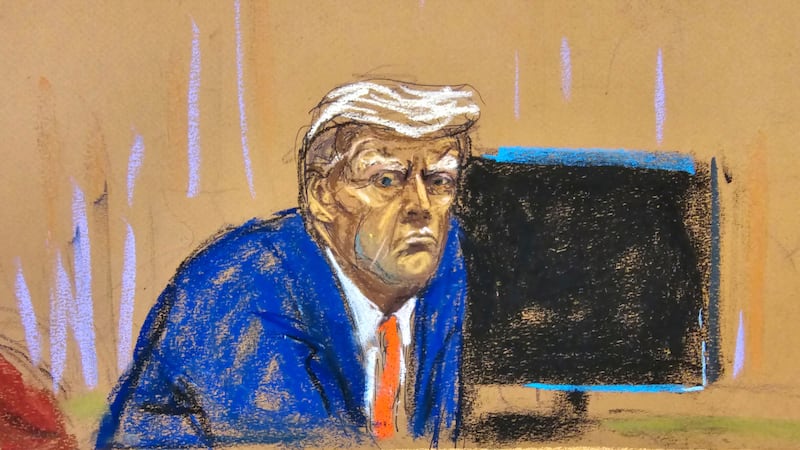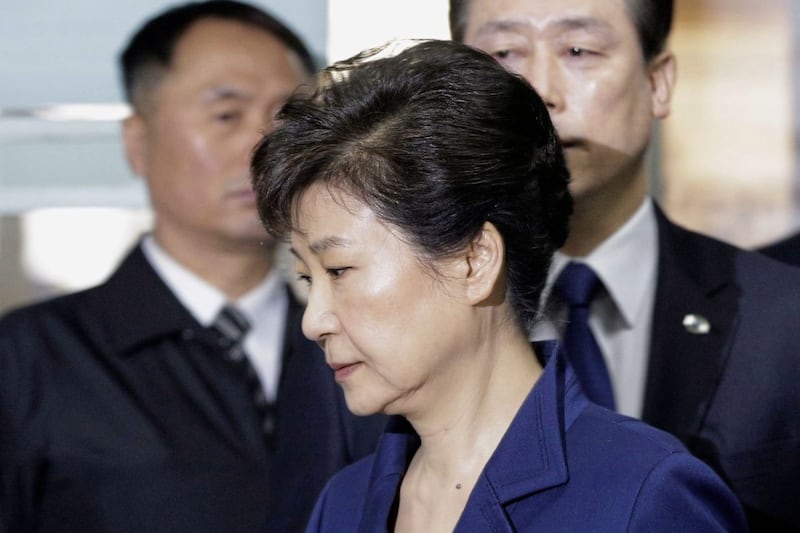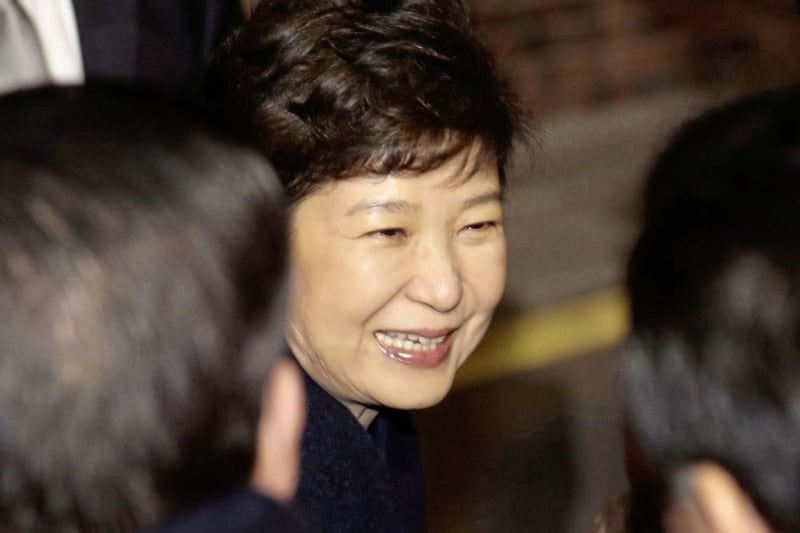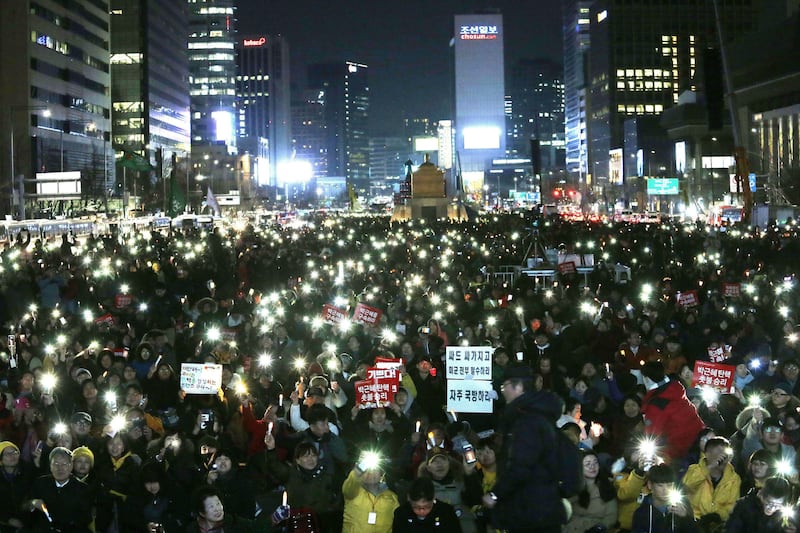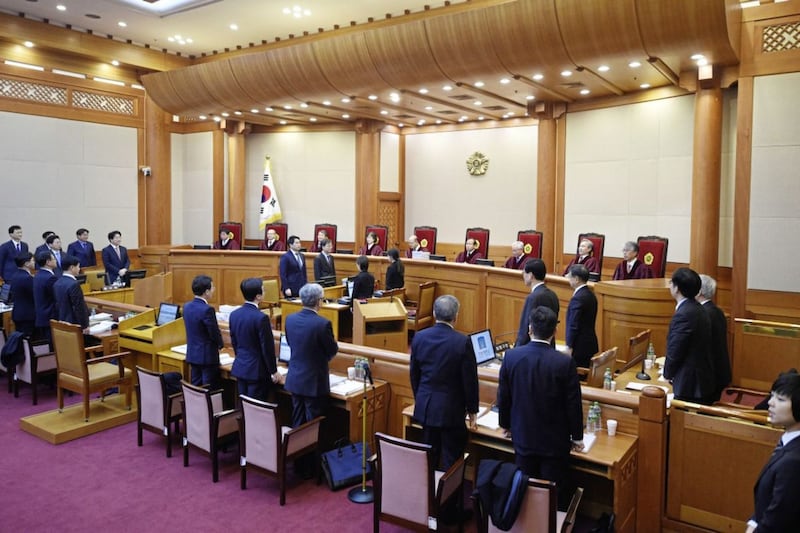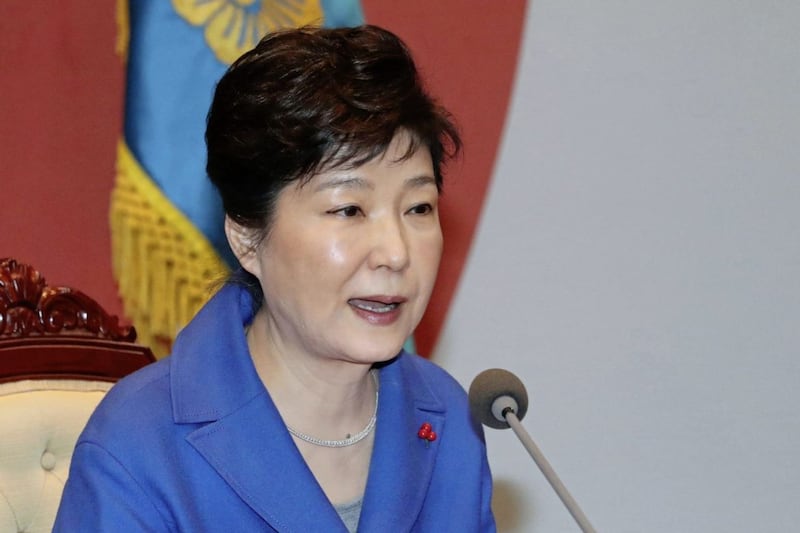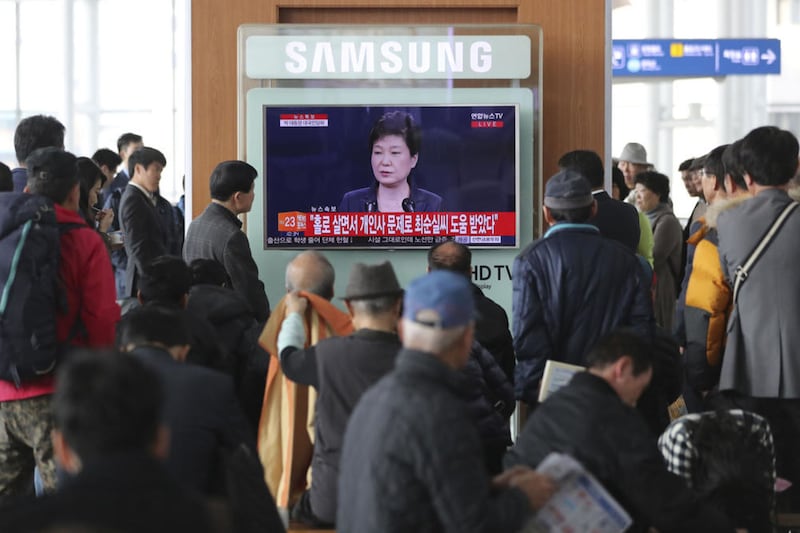South Korean president Park Geun-hye has been accused of "broadly and gravely" violating the constitution as her impeachment trial got under way.
Politicians, functioning as prosecutors in the trial, argued that Ms Park should be removed from the presidency, but her lawyers said the accusations lacked evidence.
The Constitutional Court has begun hearing oral arguments in the trial, in which Ms Park is accused of colluding with a long-time friend to extort money and favours from companies and allowing her friend to interfere with government affairs.
As the impeachment hearing was taking place, Ms Park's friend, Choi Soon-sil, appeared in another court in Seoul where she told the judge she denies the allegations against her.
Also in the courtroom were former presidential secretaries Ahn Jong-beom, who allegedly pressured companies which gave tens of millions of dollars to foundations Choi controlled, and Jung Ho-sung, charged with passing government secrets to Choi, such as information on ministerial candidates.
The chief prosecutor in the impeachment trial, politician Kweon Seong Dong, said Ms Park abused her position by "broadly and gravely" violating the constitution to commit corruption and turn state affairs into a profit tool for her friend.
He said Ms Park must be removed from office to repair the damage she had caused to the country's democracy.
Parliament voted on December 9 to impeach Ms Park, suspending her powers and making the prime minister the government caretaker.
The constitutional court has less than six months to decide if Ms Park should be removed or reinstated, and if it removes her, an election has to be held within 60 days.
Ms Park's lawyer, Lee Joong-hwan, said the accusations stated in the impeachment bill "lack evidence and fail to make legal sense" because they were based on allegations and media reports, not criminal convictions.
The hearing proceeded without Ms Park, who refused to give evidence for the second time and cannot be forced to do so.
The court had planned to hear evidence from four of Ms Park's former and current aides suspected of helping Choi, but only one appeared.
Besides the corruption allegations, the court will also hear accusations included in the impeachment bill that blamed Ms Park for restrictions on media reporting and for government inaction during a 2014 ferry sinking that killed more than 300 passengers.
Yoon Jeon-chu, who has been Ms Park's aide since 2013, did not answer directly most of the questions asking about her interactions with Choi and what Ms Park did on the day of the ferry disaster.
The court said it was not able to deliver subpoenas to former aides Ahn Bong-geun and Lee Jae-man, who both worked with Ms Park for nearly 20 years since her days as a politician, and said another current aide, Lee Yeong-seon, asked to appear later.
Ms Park has publicly apologised for putting trust in Choi, but denied accusations that she colluded with her friend in criminal activities.
Prosecutors also indicted Choi's niece and several former government and presidential officials who allegedly assisted Choi in manipulating state affairs and exploiting her connections with Ms Park to amass an illicit fortune.
Ms Park's lawyers may prefer her not to give evidence because their chief argument is that the accusations against Ms Park have not been fully proven, Han Sang-hie, a law professor at Seoul's Konkuk University, said.
Ms Park rejected requests by state prosecutors to question her and has yet to be questioned by the special prosecution team that has taken over the inquiry.
During Thursday's hearings, Seo Seok-gu, another Park lawyer, argued that the investigation into Ms Park was biased and suggested that the massive protests that pushed politicians to impeach her were influenced by groups sympathetic to North Korea.
Seo accused news organisations that reported on the scandal of demagoguery, which he said threatens to make democracy "very dangerous", and compared Ms Park's impeachment to the "unjust" deaths of Jesus Christ and ancient Greek philosopher Socrates.
